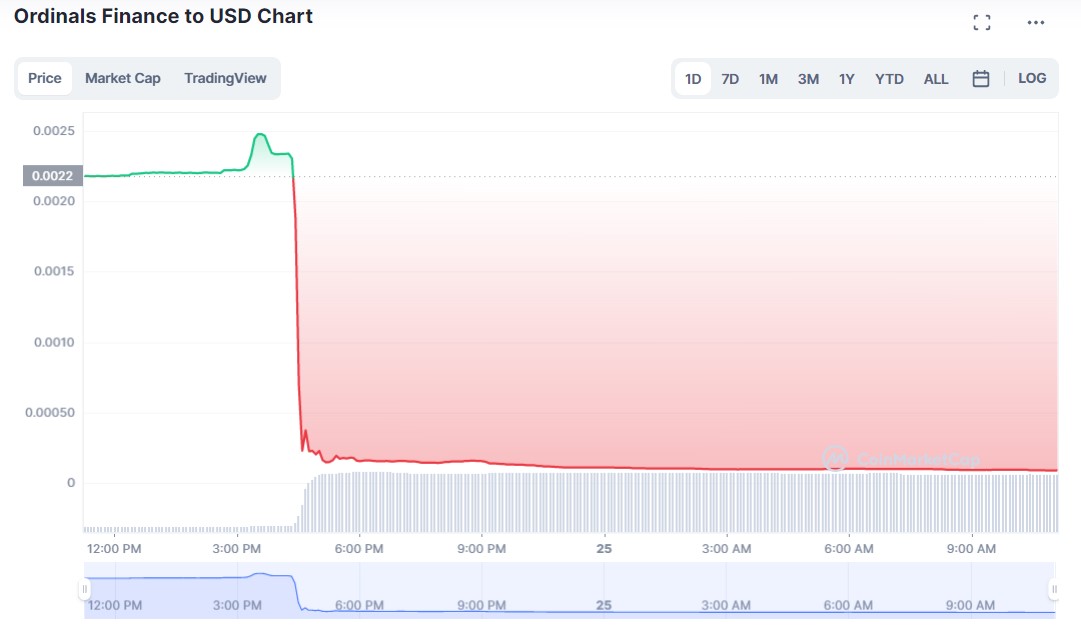
Disclaimer: The opinions expressed by our writers are their own and do not represent the views of U.Today. The financial and market information provided on U.Today is intended for informational purposes only. U.Today is not liable for any financial losses incurred while trading cryptocurrencies. Conduct your own research by contacting financial experts before making any investment decisions. We believe that all content is accurate as of the date of publication, but certain offers mentioned may no longer be available.
Ordinals Finance (OFI), a decentralized finance (DeFi) protocol, is the subject of a recent rug pull in which the members of the core team allegedly deleted all of the platform's social media accounts as well as its website. While CertiK first pointed out the scam, CoinGecko's data showed that about $1 million were carted away by the project's developers.
Ordinals Finance claimed that its protocol can enable users to lend and borrow inscriptions and to do so with trust and security. It promises cutting back on the drudgery of transactions by eliminating middlemen. While Ordinals Finance was not yet a prominent DeFi protocol, some were optimistic that its technology could help it chart positive growth in the near future.
Following the rugpull, the price of its native token, OFI, plummeted by more than 95% and is now pegged at $0.00009178. The token notably recorded its ATH about 20 days ago, a growth trend that now implies that a price pump was engineered in order to make the exit scam a grand one.

With the Ordinals Finance rugpull, the case for the frailty of crypto projects is now resurfacing, lending more credence to the growing crackdown by regulators around the world.
Growing DeFi scams in crypto
While this year has recorded a relatively mild growth rate in the total number of DeFi scams thus far, we can saw that the digital currency ecosystem in general has been experiencing scarier outcomes when it comes to exploits.
Just this week, the official Twitter account of KuCoin Exchange was compromised, an event that led to the loss of 9 ETH and 0.2 BTC, respectively. The past year has seen many exploits perpetrated across bridges, exchanges and social media accounts of protocols.
With more countries now exploring functional regulations, safeguards might now be demanded from protocols that demand adequate protection for users in case of related mishaps.

 Vladislav Sopov
Vladislav Sopov Dan Burgin
Dan Burgin